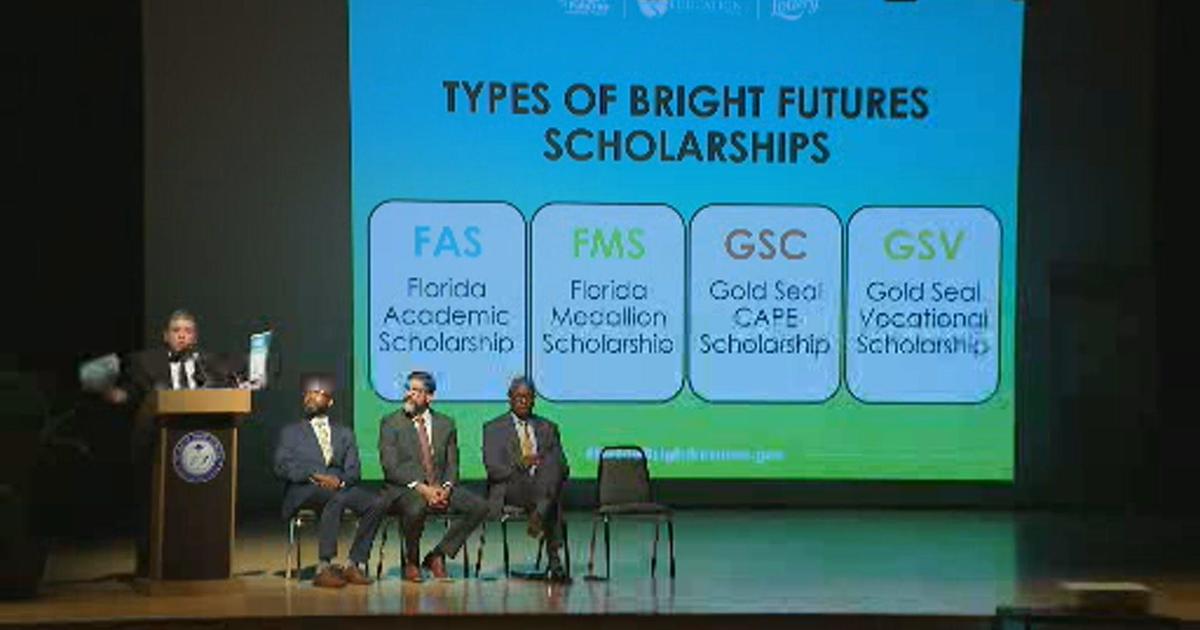Immigrant College Tuition Bill Filed
TALLAHASSEE (CBSMiami/NSF) - Children born in the United States, but whose parents are in the country illegally, would be eligible for in-state tuition in Florida under a bill filed Tuesday that would codify a court decision from earlier this year.
A federal judge in September ordered that American-born children must be allowed to attend college under the same rules as other students, and can't be forced to pay more for college because of their parents' status.
Rep. Reggie Fullwood, a Jacksonville Democrat who filed the bill, said the judge nullified the state rule, but he isn't satisfied that state education officials will moved forward in making sure that students covered by the ruling are given in-state tuition.
"I assumed the folks in the education department would automatically change the policy," but that may not be the case, Fullwood said. "This basically codifies it."
Unlike the federal Dream Act, which covers children brought to the country illegally, the Florida bill filed Tuesday (HB 11) only deals with children who are American citizens by virtue of being born in the United States.
Those students for years have been denied the ability to go to college because in-state tuition is based on a students' parents' residency status. Such students' parents don't have a residency status. Out of state tuition is typically about three times in-state tuition, which prices many of the students out of a college education.
Miami U.S. District Judge K. Michael Moore ruled in September that Florida's practice for determining in-state tuition violated the equal protection clause of the U.S. Constitution.
"(Classifying) U.S. citizen students who reside in Florida according to their parents' undocumented federal immigration status does not advance any legitimate state interest, much less the state's important interest in furthering educational opportunities for its own residents,'' Moore wrote.
Fullwood said it's not clear how many children might be affected by the change.
"There's no way to really document the number of kids who get discouraged and don't apply for school," because they can't get in-state tuition, he said.
Additional measures, possibly covering different groups of students, are expected to be filed in both chambers. The Legislature has begun committee meetings for its 2013 session, but can't officially take floor votes until March.
The same proposed legislation died earlier this year in the previous legislative session when the Senate Higher Education Committee voted it down on a tie vote. That committee doesn't exist anymore, having been replaced by a single Education Committee in the Senate.
It's not clear that the measure is needed – the federal court order clearly enjoined state officials from interpreting the law to require dependent U.S. citizen students who can otherwise establish Florida residency and the Florida residency of their parents to also provide evidence of legal immigration.
A couple of other states, California and Illinois, have made it easier for the children of illegal immigrants to attend college through scholarship programs.
The News Service of Florida contributed to this report



